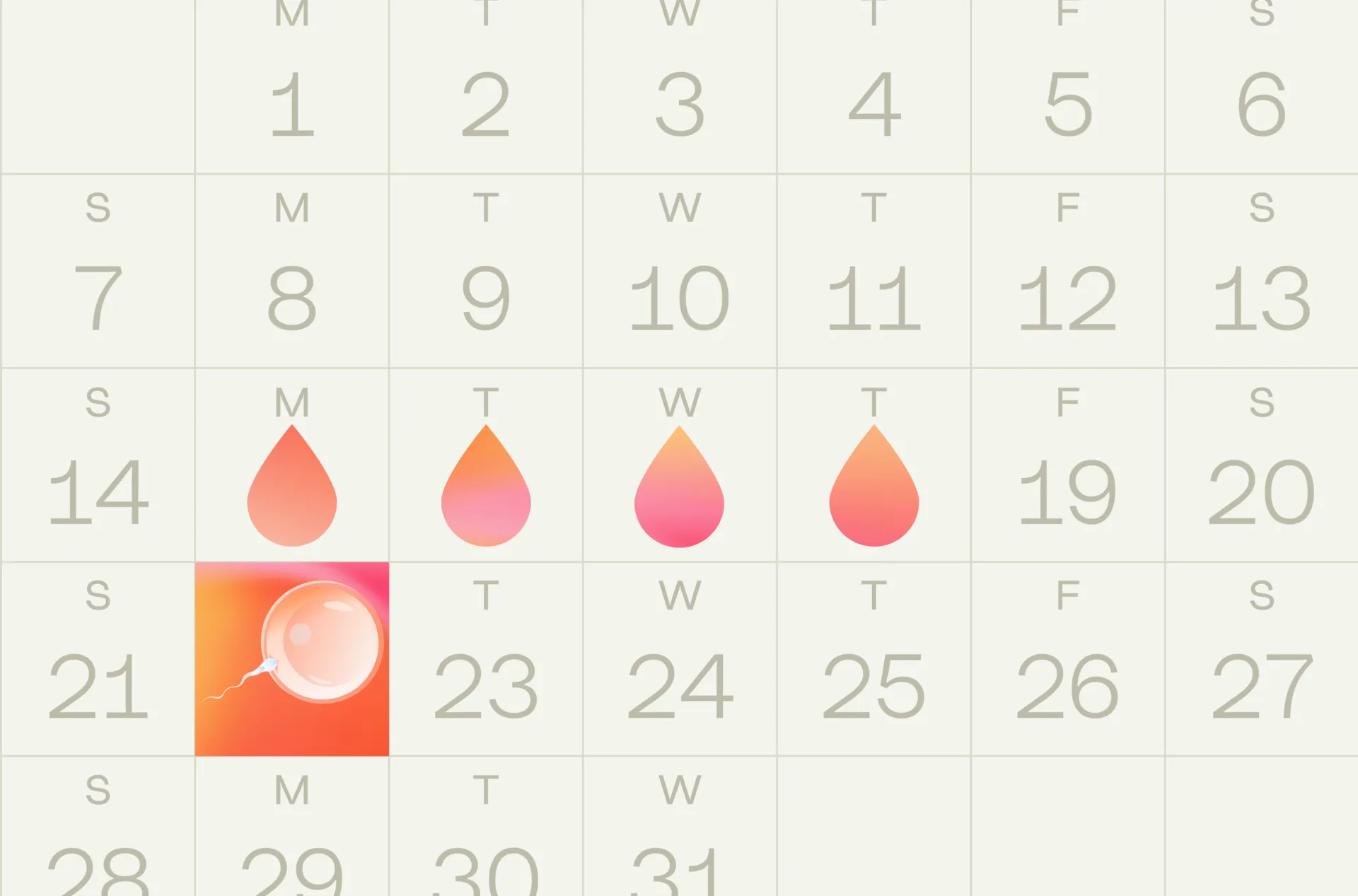Content table
Are you pregnant but nervous about your hCG rising slowly? Know that this is a common concern for women in early pregnancy.
Perhaps you received hCG results from a blood test or aren’t seeing that line darken on your home pregnancy tests. Either way, there’s more you should know about hCG when it comes to early pregnancy.
Yes, slowly rising hCG could indicate early miscarriage, ectopic pregnancy, or blighted ovum. But this isn’t always the case. So don’t jump to any conclusions just yet.
Luckily, you’re in the right place to learn all you need to know about slow-rising hCG levels and what they may indicate.
Takeaways
- hCG levels for a healthy pregnancy vary from woman to woman. But in a successful pregnancy, they tend to reach their peak right around week 10.
- Every 48 hours, you should see hCG increase by at least 66%. But most women see their hCG level double every two days.
- hCG rising slowly could indicate that the pregnancy is not viable. Common causes include impending miscarriage, ectopic pregnancy, and anembryonic pregnancy.
- hCG levels that increase by less than 66% in a two-day span should be taken seriously. Additional testing is done to determine the underlying cause. This could include more hCG tests, progesterone blood tests, or an ultrasound.
- If you’re experiencing slow-rising hCG in early pregnancy, avoid jumping to any immediate conclusions. But do contact your doctor ASAP to get answers.
What are normal hCG levels?
If you find yourself confused about how your human chorionic gonadotropin (hCG) levels measure up to the “normal” amount, you’re not alone.
Exact levels of hCG range quite a bit from woman to woman.
That said, carefully look at the chart below. You’ll see what are considered generally normal ranges of hCG based on the week of pregnancy. Take note that this chart is based on hCG levels in blood (not urine).
Week # | hCG Blood Levels (mIU/mL) |
3 | 5-72 |
4 | 10-708 |
5 | 217-8,245 |
6 | 152 – 32,177 |
7 | 4,059 – 153,767 |
8 | 31,366 – 149,094 |
9 | 59,109 – 135,901 |
10 | 44,186 – 170,409 |
As you can see in the chart, hCG blood levels rise week to week for the better part of the first trimester. Even still, the range of “normal” values varies considerably.
Regardless of your exact numeric value, around week 10 of pregnancy, hCG levels usually reach their peak. After that, hCG may steadily decline until about week 16. Levels of the hormone will then remain consistent (somewhere between 20,000 to 200,000 mIU/L) for the duration of the pregnancy.
If you’re in the very early stages of pregnancy, it’s also helpful to understand “normal” ranges for hCG urine levels.
For home pregnancy tests, hCG urine levels that are greater than 20 mIU/mL will give you a positive result. Any value of 5 mIU/mL or less will indicate “not pregnant.”
Of course, not all tests are made equal, and the results could be unclear. In that case, repeat the test in a few days or talk to your healthcare provider.
See how your hormone chart might look like!
Answer some questions to help us provide you a free personalized hormone chart customized to your hormonal health and conditions
Why hCG declines or plateaus at the end of the first trimester?
Let’s take a deeper look at the role of human chorionic gonadotropin (hCG). hCG triggers the corpus luteum to produce progesterone, which helps maintain a healthy pregnancy.
Somewhere around 7 to 9 weeks gestation, the placenta begins producing progesterone. So at this point, large amounts of hCG are no longer needed to stimulate progesterone production.
Where many women go wrong in looking at their hCG levels is focusing too much on the numeric value. In reality, the most important factor to consider with rising hCG is the rate of increase.
More on this in the next section!
At what rate do hCG levels normally rise?
During the first 6 to 7 weeks of gestation, hCG values generally double every 48 hours. That’s why sometimes you’ll hear the phrase “hCG doubling time.” While this doubling occurs in the majority of healthy pregnancies, there are some cases where the rate is slightly lower. In about 15% of viable pregnancies, hCG levels rose by less than 66% in 48 hours.
But as a general rule of thumb, if your hCG levels rise by at least 66% every 2 days, the pregnancy is healthy. This is why your doctor will have you take a blood test to get your baseline hCG level early in the pregnancy. From there, they can monitor hCG levels to see if the pregnancy is progressing normally.
What is considered slow rising hCG?
Slow-rising hCG is when your hCG levels are not increasing by at least 66% every two days. If you experience this, it could mean the pregnancy is abnormal in some way. So further testing may be necessary to find answers. In the next section, we’ll go over some potential causes.
What causes slow rising hCG?
Here are 3 circumstances that are connected to hCG rising slowly:
Impending miscarriage
A miscarriage is a spontaneous pregnancy loss that occurs before 20 weeks of gestation. When you see slow-rising or declining hCG levels, it may mean the embryo has stopped developing. In other words, it’s a nonviable pregnancy.
Worried your slow-rising hCG could indicate a miscarriage? Here are other miscarriage symptoms to look for:
- Spotting
- Bleeding
- Passing tissue-like clots
- Abdominal cramps or pain
- Back pain
- Nausea or vomiting
Keep in mind though that in some cases of early pregnancy loss, there are no visible signs. This is called a missed miscarriage.
Ectopic pregnancy
The second potential culprit of hCG rising slowly is an ectopic pregnancy (this is when the embryo implants outside of the uterus). With ectopic pregnancies, 90% of the time the embryo is found in the fallopian tubes.
These pregnancies are not viable. And more importantly, they can be life-threatening if left untreated. This is because the fallopian tube could rupture and cause internal bleeding.
An ultrasound is needed to detect the ectopic pregnancy, and from there it is treated as a medical emergency. If you’re concerned about this, consult your physician right away.
Anembryonic pregnancy (blighted ovum)
Anembryonic pregnancy is another potential cause of hCG rising slowly. When implantation occurs without the fertilized egg growing into an embryo, this leads to a blighted ovum. This is a gestational sac that does not contain an embryo.
You may be wondering, “Well then, why did a positive pregnancy test result?” This can feel confusing. But because a placenta forms with the gestational sac, your body will still produce hCG even though there’s no embryo.
The best way to confirm if you have a blighted ovum is to get an ultrasound. And just like an ectopic pregnancy, an anembryonic pregnancy is not viable. This can be devastating, but it’s not unusual. These types of pregnancies account for half of all first-trimester pregnancy losses.
Researchers don’t know the exact cause of anembryonic pregnancies, but chromosomal abnormalities are part of the underlying issue. The good news is that most women who experience a blighted ovum can have successful pregnancies later on.
And be aware, sometimes people mistake a blighted ovum for a chemical pregnancy. But a chemical pregnancy happens when the embryo stops developing before about 5 weeks of gestation. In a chemical pregnancy, you won’t have slow-rising hCG. Instead, you will have falling hCG levels.
A closer look at hCG levels in determining pregnancy viability
It was often thought that ultrasound was the most reliable method for assessing viability in early pregnancy. And it is certainly an important clinical finding.
However, one study found that the rate of beta-hCG rising was a more reliable indicator of via
In the study, 22 of the 158 patients had a “viable” pregnancy based on their 8-week ultrasound despite their slow-rising hCG levels. However, 16 of these 22 women no longer had a viable pregnancy beyond the first trimester.
This shows that slow-rising hCG levels should be taken seriously when determining a “normal” pregnancy. Even if an ultrasound shows the pregnancy to be healthy.
By itself, though, hCG cannot give a definitive answer about the health of your pregnancy. Yes, slow-rising levels can be a sign of one of the abnormalities we discussed. But on their own, they cannot establish a diagnosis.
One study found that using hCG as the sole predictor of the risk of miscarriage yielded only 44.7% accuracy.
So if you’re concerned about your hCG levels, it’s best to seek medical care. A doctor can help you get a better picture by performing additional tests, such as measuring progesterone levels or using an ultrasound.

FAQs
If you’re asking yourself this question, know that we are sending you hugs. But the sad truth is that there’s no way to increase hCG levels. There are no home remedies or supplements that will do the trick.
The best thing you can do is get answers about why your hCG levels aren’t rising normally. Contacting your HCP is a good first step in figuring out the underlying cause.
It can take a few days after implantation for this hormone to rise enough to show a positive pregnancy test. So you could get a false negative result if you test too early. This is why it’s recommended to wait until the first day of your missed period to test. Once you get a positive result, it’s typical for levels of hCG to nearly double every 2 days.
It’s best to make an appointment with your OB-GYN to get additional testing. A blood test for hCG and progesterone levels as well as an ultrasound can provide more information about the pregnancy.
While slow-rising levels of hCG can be a sign of ectopic pregnancy, there could be other issues at play. Anembryonic pregnancy and impending miscarriage can also be signaled by slow-rising hCG. Also, keep in mind that hCG levels on their own cannot diagnose anything. The best way to determine the exact cause behind abnormal hCG levels is to contact your doctor for additional testing.
For many pregnancies, hCG will just about double every 48 hours. But as long as hCG levels are increasing by 66% every 2 days, the pregnancy is likely progressing normally. However, remember that hCG levels alone don’t provide the whole picture of the pregnancy.
Is it possible to have a normal pregnancy with slow-rising hCG levels?
On its own, an hCG level cannot diagnose anything. If your hCG rise is slow, your doctor will have your levels retested and may suggest additional testing. This could include getting blood progesterone levels and an ultrasound. Based on all of this information together, your doctor will advise you accordingly.












